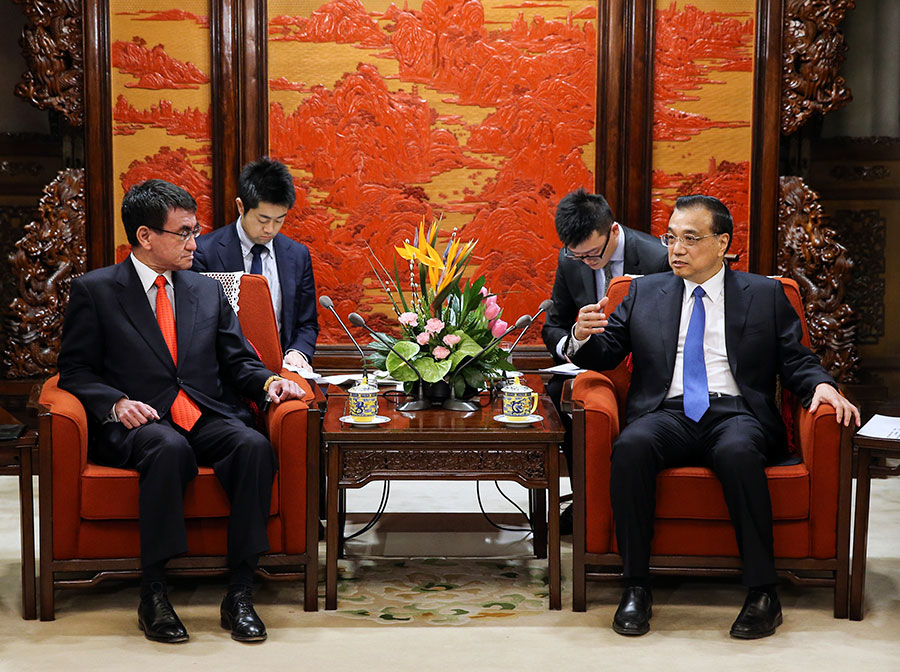Cherish rekindled relations


During Japanese Foreign Minister Taro Kono's visit to Beijing on the weekend, the first since he assumed the office in August, the two countries agreed on the important role that high-level exchanges can play in improving and developing bilateral ties, and to work together to create a suitable atmosphere to convene a summit for the leaders of China, Japan and the Republic of Korea at an early date.
This year marks the 40th anniversary of the Treaty of Peace and Friendship between the two neighbors, and it should be seized as an opportunity to thaw relations.
That Kono pledged that Japan will abide by the principles of the 1972 joint communiqué that normalized relations between the two countries, and said Japan will also properly deal with issues related to the Tibet and Xinjiang Uygur autonomous regions, indicates that Japan is seeking to get bilateral ties back on track.
The principles outlined in the joint communiqué not only laid the foundations for the normalization of bilateral ties, they are also guarantees for the healthy development of Sino-Japan relations. Abiding by the principles is the prerequisite for healthy relations.
That their sovereignty dispute over islands in the East China Sea cannot be solved in a short time should not hinder the two sides making joint efforts to promote cooperation and friendship. To make that happen, Japan should work together with China to establish a regular liaison mechanism.
Although Beijing cherishes Japan's positive change of approach, the good momentum still needs nurturing.
Historical problems are always issues of principle, not cards to play. It is impossible to make breakthroughs in deepening mutual trust unless Japan heeds the lessons of history.
With this in mind, Beijing will not only listen to what Japan says, but more importantly watch what it does.
































